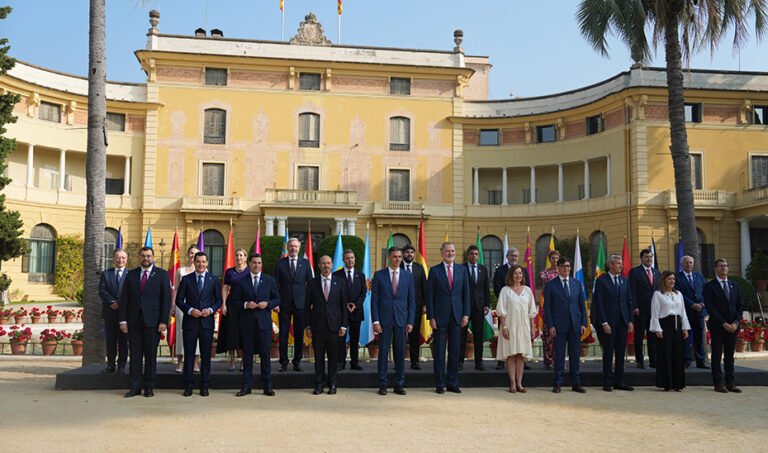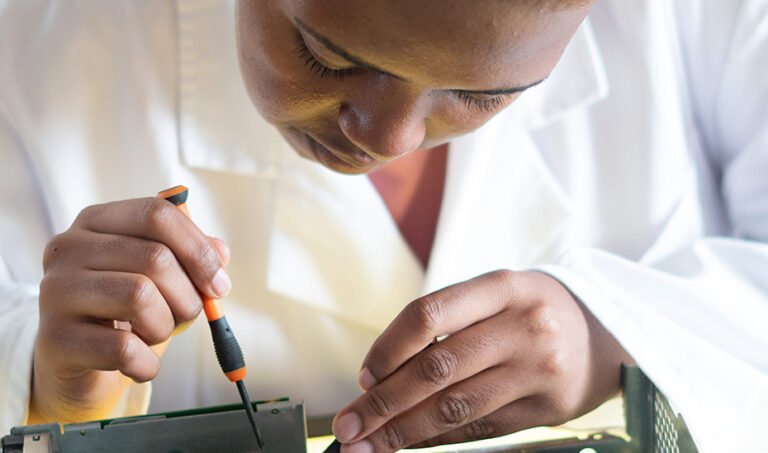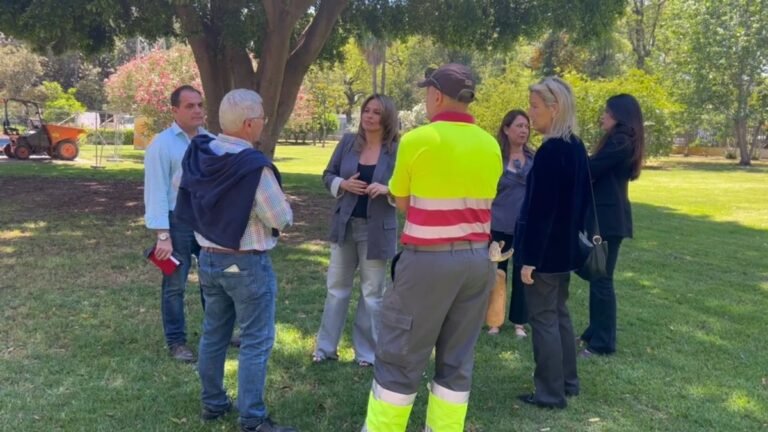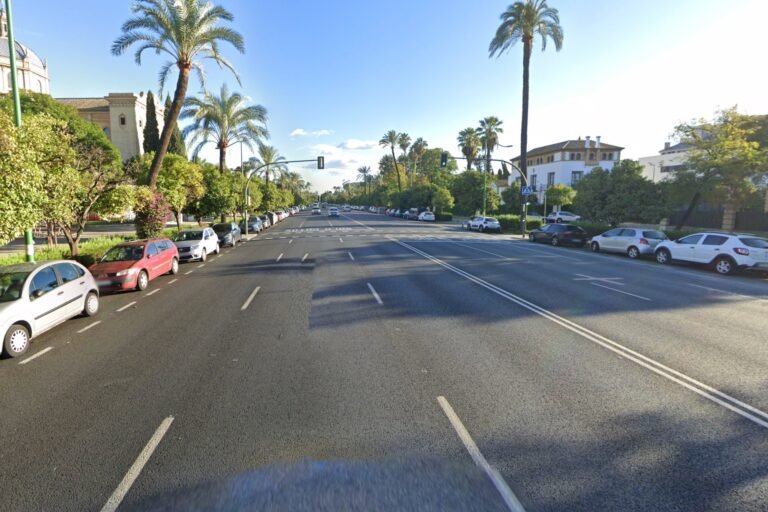
The Minister of Sustainability and Environment of the Andalusian Government, Catalina García, has announced the launch of a project that will allow the scientific collection of wrack (accumulations of organic matter on the coast) from the invasive exotic algae ‘Rugulopteryx okamurae’ for study as sustainable agricultural fertilizer and bio-stimulant, in order to reduce its ecological impact and explore beneficial uses. This is the first project authorized in Andalusia since the approval of the National Strategy in 2023. She made this announcement after meeting with the mayor of Tarifa (Cádiz), José Antonio Santos, at the Town Hall of the town, along with researchers and institutional representatives involved in this pioneering initiative in Andalusia.
The meeting was attended by the territorial delegate of Sustainability and Environment in Cádiz, Óscar Curtido; the councilor responsible for the Area of Environment of the City Council of Tarifa, Ricardo Silva; the councilor of Beaches, Ignacio Trujillo; the project promoter, Antonio Vegara, on behalf of the Permanent Education Section of Tarifa, and the students participating in the project, Mariluz Caballero and Luz Pelayo, among others.
Catalina García emphasized that this is the first authorized project in Andalusia that will allow the controlled collection, for exclusively scientific purposes, of the remains of the Asian algae deposited on beaches outside the marine environment, specifically in points of Tarifa and Algeciras. «Today we take an important step with this authorization because, for the first time, we will study rigorously the real possibilities of agricultural utilization of this biomass, with safety and environmental sustainability,» she stated.
This pilot project, supported by the Andalusian Biotechnology and Blue Development Institute of the University of Malaga, will be carried out under strict biological safety and ecological control conditions, according to the resolution signed by the Territorial Delegation of the Ministry. In this regard, she explained that the algae must be transported in airtight containers to a fermentation farm in Castellar de la Frontera, where it will be processed until completely inactivated, preventing its reproduction and spread. Also, the collection will be limited exclusively to already detached wrack, without affecting live algae or the marine ecosystem or protected species, such as the ‘Patella ferruginea’.
«This project represents a way to mitigate the ecological damage caused by this invasive species and opens the door to a circular economy model, where an environmental problem can become an opportunity for sustainable agriculture and innovation,» she argued.
On the other hand, the Minister recalled that the Andalusian Institute of Research and Training in Agriculture (IFAPA) is also investigating the use of the invasive algae as fertilizer for agriculture and its use as a bio-stimulant and fertilizer.
Management Plan against the algae of the Junta
Catalina García emphasized that the implementation of this initiative is in line with the framework defined in the Management Plan against the ‘Rugulopteryx okamurae’ algae on the Andalusian coast, which the Ministry is finalizing and will be submitted to the General State Administration for approval. This plan, developed in coordination with technical and scientific services, is a key tool that includes strategic lines such as applied research, monitoring of the species’ expansion, environmental awareness, and safe management of its biomass. «Andalusia has been at the forefront in addressing this challenge in a structured way, with scientific criteria and through institutional collaboration, because we cannot allow a problem of this magnitude to go unanswered,» she noted.
In her speech, the Minister recalled the serious impact of ‘Rugulopteryx okamurae’ on Andalusian marine ecosystems, especially affecting the Strait of Gibraltar and much of the Mediterranean and Atlantic coast of the autonomous community. The invasion of this algae, originating from the Pacific and already established for years on the Andalusian coast, poses a threat to biodiversity, artisanal fishing, and coastal tourism. Its massive accumulations generate high cleaning costs for municipalities and directly affect catches and the commercial activity of many families dependent on the sea.
This Management Plan is in line with the National Strategy for Control of ‘Rugulopteryx okamurae’ and aligns with European regulations that allow controlled exceptions for scientific or public interest purposes, as well as possible commercial use once removed by the competent municipal administration and subsequently inactivated.
«The Asian algae problem cannot be addressed solely through containment and disposal. We need a forward-looking vision that leverages scientific knowledge and promotes new sustainable opportunities,» she stated. In this sense, she emphasized the exemplary value of this project led from the local educational sphere and with the support of the university, as a demonstration of the social and scientific involvement necessary to find real solutions.
Support for the fishing sector
During the meeting, the Minister of Sustainability and Environment defended the Junta’s commitment to the most affected municipalities, highlighting that Andalusia has been the only Administration to offer aid to the fishing sector impacted by this invasive species. «We have supported our fishermen and now we take a further step by investing in research and valorization of this biomass, which has so far been treated only as a costly waste to manage,» she stated.
She also called for greater involvement from the Spanish government in this issue that already affects a large part of the Andalusian coast. «We demand a regulatory reform that allows for the controlled use of the biomass, specific aid for coastal municipalities and the fishing sector, as well as the creation of a state fund to alleviate the costs currently borne solely by the municipalities,» she reminded.
Catalina García explained that European Regulation 1143/2014 allows exceptions to the restrictions imposed on invasive species when it comes to scientific research projects or imperative reasons of public interest. «This is the path we have explored and now open with this project. The central government must do the same to provide legal coverage and financial support to these initiatives,» she added.
The authorized project will have an initial validity until December 2035, although it can be revoked at any time if non-compliance or environmental risks are detected. Among the obligations imposed on the research team is to prepare annual reports with results and methodologies, send them to the corresponding territorial delegation, and ensure prior contact with the environmental services of the Junta before each action.
The Minister particularly appreciated the educational and citizen involvement in the project, with students participating in the educational plan ‘Seaweed of the Strait’. «They are an example of how innovative solutions to the major environmental challenges of our time can also be promoted from public education,» she concluded.






